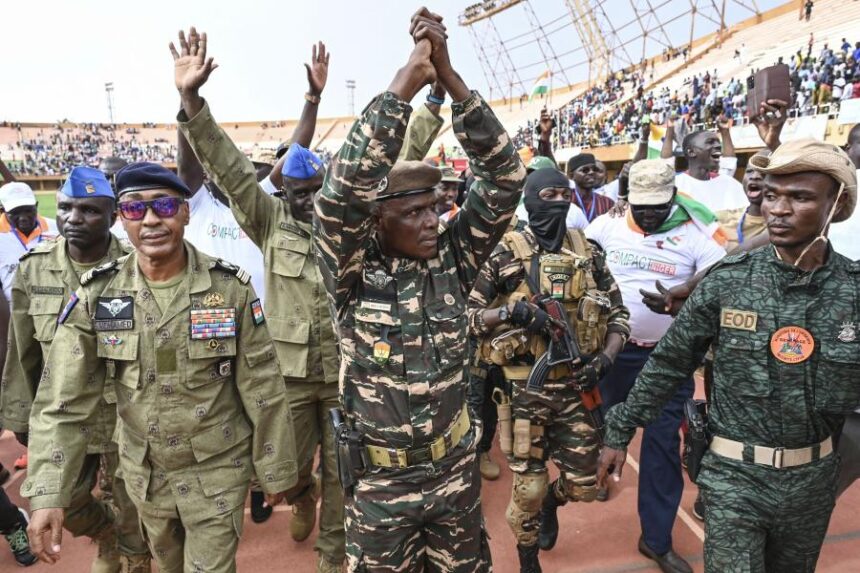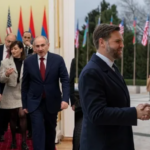Summary by Geopolist | Istanbul Center for Geopolitics
The DIIS Policy Brief for September 2024 explores the implications of the 2023 coup in Niger on Western security strategies and the wider geopolitical landscape in the Sahel. The report underscores the necessity for Western powers to reevaluate their strategy in the region, particularly in light of the rapid disintegration of their strategic position in Niger following the coup. This swift transformation highlights the precarious nature of Western alliances in areas characterized by unstable political landscapes, where allegiance may fluctuate in response to local power dynamics.
Niger’s Pre-Coup Role as a ‘Fortress’: Niger’s significance before the coup was derived from its status as the “last man standing” in the Sahel—a stronghold of relative stability and collaboration for Western counterterrorism initiatives. The departure of France from Mali and Burkina Faso, coupled with the mounting pressures on EU and UN missions, has positioned Niger as a crucial element for the sustained influence and security collaboration of Western powers. The governance of President Mohamed Bazoum was perceived as collaborative and in harmony with Western strategic objectives, rendering the abrupt coup especially unsettling.
The Coup and its Motivations: The coup, orchestrated by General Abderrahmane Tchiani, stemmed from a confluence of immediate self-preservation concerns and enduring systemic challenges within the military framework. Tchiani allegedly harbored concerns that the continuing anti-corruption inquiries might focus on him, while the coup simultaneously illustrated the military’s longstanding function as a moderator of perceived political overreach. The emergence of high-ranking military officials who swiftly centralized authority without resorting to violence indicates a widespread discontent with Bazoum’s governance, extending beyond Tchiani’s ambitions.
Transformations in Alliances and Security Collaborations: The CNSP promptly separated itself from Niger’s enduring security ties with Western nations, choosing instead to foster a more intimate partnership with Russia. This transition reflects the circumstances in Mali, where Russian private military contractors, particularly the Wagner Group, have established a significant presence. However, due to a smaller staffing level and a more cautious approach to fully embracing Russian security support, Niger’s relationship with Russia appears to be more tentative. The rapidity and determination exhibited by the new government in cutting ties with France and the United States, alongside the expulsion of their military forces, suggests a significant strategic reorientation that may reshape the security landscape within the region.
Fundamental Factors Contributing to the Coup: The policy brief delineates both the immediate and more profound structural factors contributing to the coup. The significant influence of the military in Niger’s political landscape, alongside the instability and fragility of civilian governance, has fostered an environment conducive to such a dramatic shift. The military perceives its role as a protector of the state, possessing the authority to intervene when political leadership is considered ineffective or corrupt. This perspective is deeply intertwined with Niger’s historical context of successive coups following its independence in 1960.
Divergent Perspectives on Collaborations: The coup illuminated a pronounced disparity in the perceptions of partnerships held by Western entities and Nigerien security forces. Although diplomats from Europe and America were confident in their perceived strong relationship with Niger’s military, the local officers harbored considerable skepticism. These officers, particularly those at junior levels, exhibited a skepticism towards Western forces, often mistakenly believing that they operated autonomously or harbored hidden agendas, such as the support of jihadist groups. This skepticism was exacerbated by populist discourses that characterized Western engagement as a form of neocolonial intrusion.
Suggestions for Subsequent Involvement: In order to prevent analogous disruptions in various nations, the report presents a series of strategic recommendations for Western powers:
Fostering Profound Trust: Cultivate substantial relationships with local security forces and governmental entities, transcending mere transactional military support. This encompasses the cultivation of enduring alliances capable of enduring political fluctuations.
Coherent Security Offers: Develop assistance packages that are meticulously designed to meet the unique requirements of partner nations, ensuring that they remain distinct and do not intersect with other initiatives. The collaboration among global entities is of paramount importance.
Emphasize the Importance of Political Involvement: Maintain a consistent engagement in political matters to ensure influence and awareness of evolving dynamics, even in the face of disrupted security connections. This engagement ought to encompass a wider spectrum of stakeholders, extending beyond merely the military elite.
Insights for the Wider Sahel and West African Region: Niger’s trajectory serves as a representative case of the broader Sahel region, characterized by fragile civilian governance, robust military institutions, and reliance on external security, resulting in a precarious situation. The swift disintegration of Western alliances in Niger indicates that analogous circumstances may arise in other contexts unless Western approaches evolve to accommodate the intricate political dynamics of the region. The document urges Western actors to embrace a more adaptable and context-aware strategy, acknowledging that their involvement can swiftly turn unstable if it is not firmly anchored in the local political and social landscape.
Conclusion: The DIIS Policy Brief acts as a crucial prompt for Western policymakers, advocating for a thorough reassessment of security strategies in the Sahel and beyond. As Niger reconfigures its alliances, the brief underscores the imperative for more sophisticated, context-sensitive strategies that consider local perceptions, political intricacies, and the military’s involvement in governance. Success in the region moving forward will hinge on the capacity of Western actors to adjust to these dynamics and cultivate more robust, lasting partnerships with local stakeholders.
Read more below.







